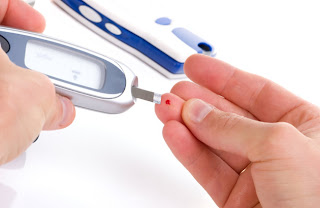 |
| Diet for Diabetes |

Since my diagnosis with
diabetes at the age of eleven, my own
diet has changed dramatically. I maintain my current
healthy weight with a great diet/eating plan. If you do plan on losing more than about a stone in weight then I would visit your doctor for more tips on how to do this without risk.
I've had diabetes for seven years now, but to tell you that how I maintain weight is perfect would be totally wrong of me. However, I can advise you to follow my steps because I know what works and what doesn't. Before I really begin I must also say that I have been brought up by great parents who taught me to eat everything, and so I do! If there is something that you don't like, there are loads of other diabetic recipes and ideas that you will eat and appreciate.
I am a university student and I like to buy fresh and organic produce from where I live. I believe that this is important because it can be the most good for your body and contain more nutrients and vitamins than most supermarket produce. I like to source food from my fortnightly farmers market in town, which sells amazing meat and dairy produce and fresh in season fruit and vegetables. This is another important thing to remember, that eating fruit and vegetables in their season means that they will taste better as well as doing you good. I have a lot of influence from Western European cuisine (mainly France and Italy) as you will tell, but I do not profess to be a chef and everything is easy to make and very convenient.
I have read countless diet books and
diabetic recipe/diet books, and I came to a conclusion that I think really works. I fused all the good things from the diets (but not from every diet) and sort of put together my own one. I call this my Juvenile
Diabetes Healthy Diet!
The "rules" that I would lay down are as follows:
1. Cut back on snacks and then change the type of snacks you eat.
Certainly, my biggest downfall although it wasn't really apparent to me. When I first started at University, I had little or no routine, which meant that filling my day was difficult and popping into the kitchen for a snack, no matter how healthy it felt, was a regular occurrence. This is one of the hardest things to do for some people, but establishing a great routine is essential to great diabetes care. The types of snacks to be eating are unsalted nuts, dried unsweetened fruit, fresh fruit, fresh vegetables (I love fresh red pepper and cucumber), dark chocolate (richer and nicer and you only want two squares usually).
2. Cut back on white flour and embrace wholemeal carbs.
This is the most essential part of your diet, and the thing that can show the biggest increase in loss of weight. Some
diets, in fact, just focus on this point, and are very successful. Wholemeal (especially stone ground wholemeal) is so good for you and has so much more flavour in it that switching is much easier than you think. Most people are really surprised at the ranges you can get in your supermarket, again remember that the bread that is best for you is the one that is freshest with least preservatives or added ingredients. Furthermore, brown or basmati rice is great with a lovely nutty texture. Wholemeal pasta is great and for your potatoes, I would totally recommend the smaller new potatoes.
3. Stop drinking cocktails, start drinking wine.
Cocktails are full of sugar, colourants and preservatives. As a student I have had loads of practice at going out and not drinking cocktails, so my drink of choice is Malibu and Diet Coke if I feel I have to drink something, and I make it last all night. I can then top up with Diet Coke (which has almost no sugar in it), and it looks as though I am drinking Malibu, who is to know. If you are out at a restaurant, red wine is much better than anything else you can order, (except water of course!) and it has been proven that the anti-oxidants in red wine are great for keeping a healthy heart. The recommended amount is one glass a day with your evening meal.
4. Start cooking more fruit and vegetables.
Fresh fruit and vegetables are a great way to get all the
vitamins and minerals you need. And there are so many different ways in which to cook vegetables, but I find that raw is the best followed closely by steamed. Both ways preserve all their natural goodness as well. I will follow this post with another
diabetes recipe's post.
5. Drink more water.
I know you have heard people say this many times before, but the benefits of drinking more water are endless. A few tips on how to get more water into your day are, firstly, to put bottles of water at all the places you go in the house or work. So keep one in your desk, on your desk, a glass in the kitchen, the bedroom, the sitting room, etc. Try to drink all these glasses up, and you will be well on your way to 8 glasses a day. The trick is to add a glass every few days or so, if you try to drink all that water in one go to you won't be so inclined to drink eight glasses again, trust me! Have a go, it's amazing how great you will feel.








 6:41 AM
6:41 AM
 Unknown
Unknown

















